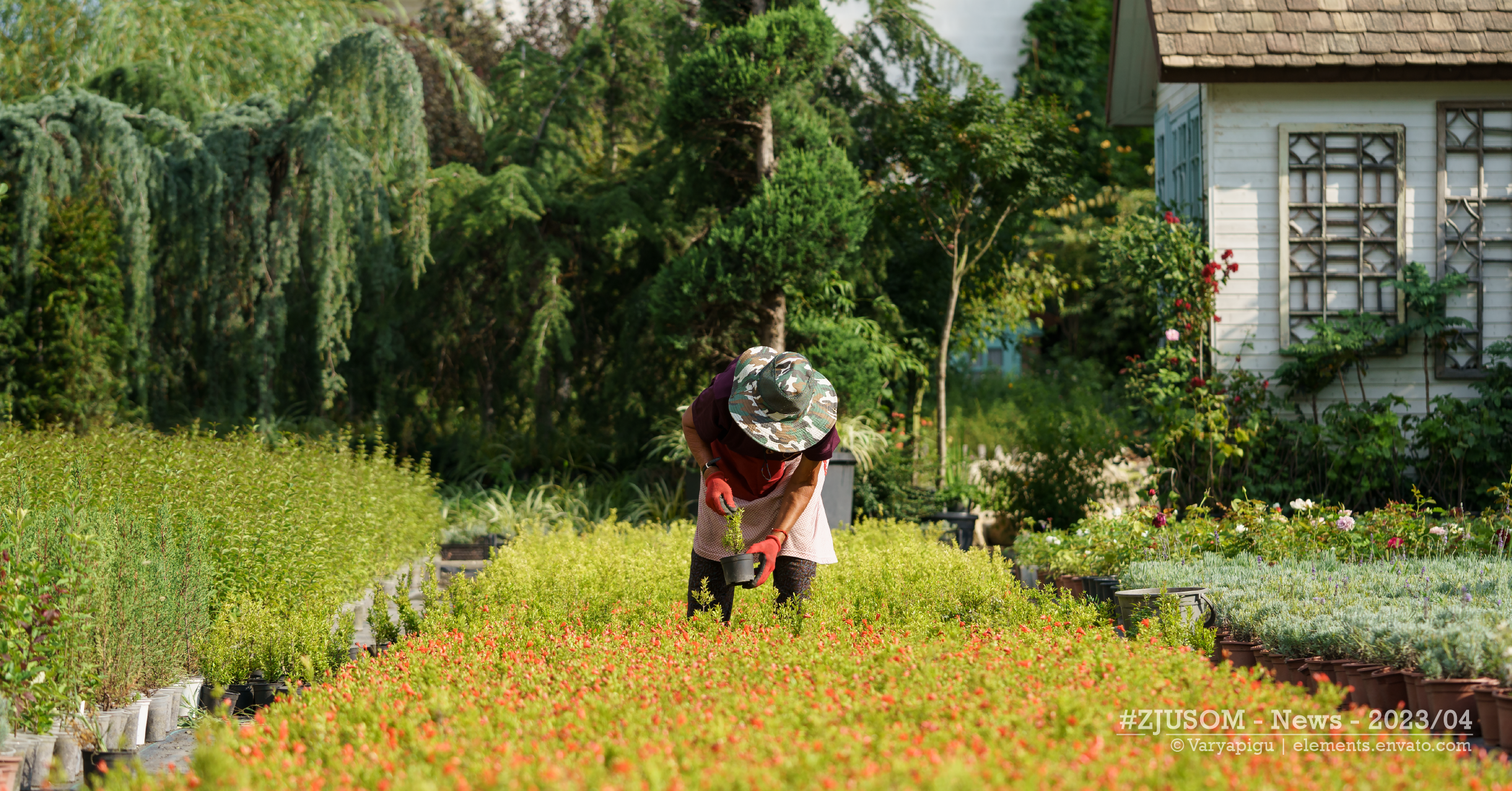
The "Gradually Postponed Retirement" and the "Promotion of Reemployment of the Younger Senior Citizen" have become flagrant issues, triggering heated discussions on the internet. Nevertheless, the aging population is on an upward trajectory, and we have barely addressed the issues that accompany it.
According to the National Health Commission of the Peoples Republic of China, the 60+ demographic in China will exceed 400 million by 2035, which entails that almost half a billion people won’t be able to participate in most forms of employment, amongst which, farming has to be one of the most significant ones. This poses a grave problem for the Chinese economy as the development of agriculture can’t be sustained, eventually leading to less food production and the irrevocable deterioration of the environment.
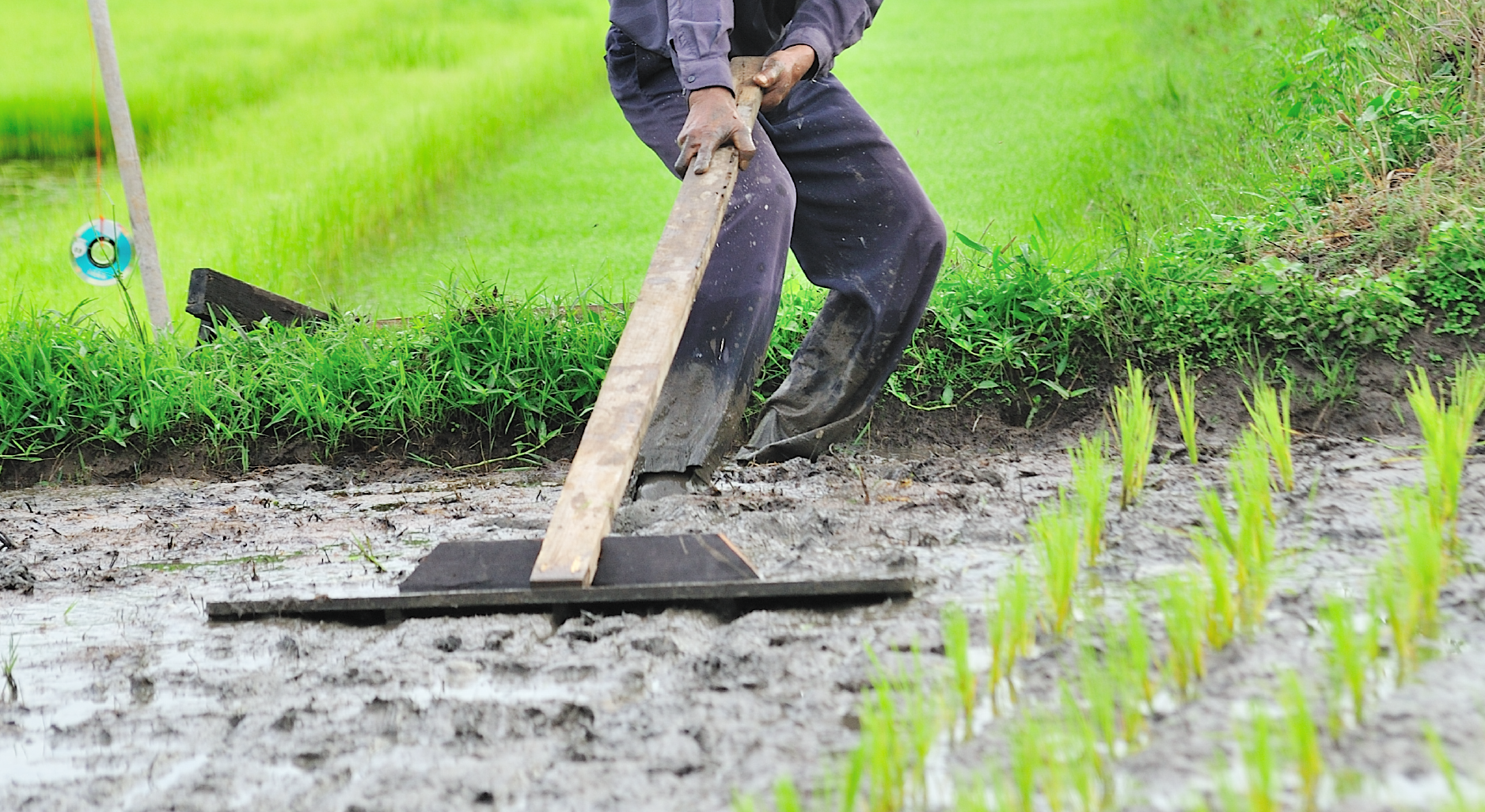
|
© Sommai | elements.envato.com |
On February 23, 2023, Professor ZHOU Xinyue, the Dean of Marketing in the School of Management, and REN Chenchen, a Ph.D. Student in the School of Public Administration/College of Environmental and Resource Science, Gu Baojing, Standing Professor of the College of Environmental and Resource Science at Zhejiang University, along with other scholars at home and abroad, jointly published their research: "Aging Threats Sustainability of Smallholder Farming in China" on nature.
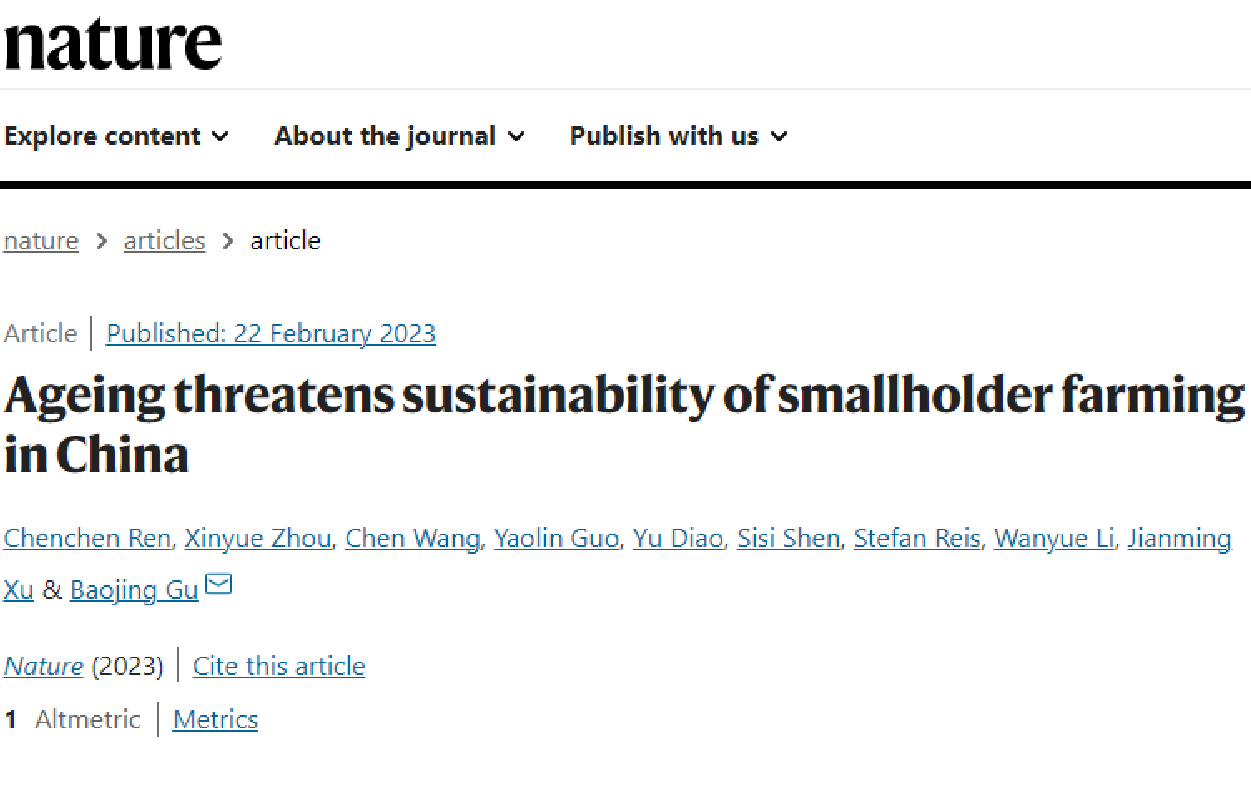
|
The paper was published online on February 22, 2023. |
Their research offers viable solutions to potential behavioral and/or cognitive changes brought on by senescence. In this issue of ["Scientific Research X Business Plus"], let us explore this subject matter as it is bound to affect the young and the old alike.
|
ZHOU Xinyue | 周欣悦 School of Management, Zhejiang University |
||
|
|
||
|
|
|
Academic Background: ZHOU Xinyue is the Dean of marketing, Professor, and Doctoral Supervisor at the School of Management at Zhejiang University. Her research fields include consumer psychology, psychological and behavioral consequences of money, and social cognition of nostalgia. You can learn more about Prof. ZHOU Xinyue’s academic background here |
|
Why do changes in behavior and decision-making brought on by senescing farmers pose such a threat? |
As humans grow older, their memory and cognitive abilities are bound to change; research in psychology has proven that aging will lead to a definite cognitive decline (Ruffman et al., 2008), assuredly affecting behavior and decision-making (Wilkinson et al., 2018).
Research in behavioral science has shown that the elderly resist the adoption of new technologies (Venkatesh et al., 2012), their strategic planning is more focused on the present (Löckenhoff & Carstens, 2004), and their decision-making is more short-sighted (Seaman et al., 2016), etc.
Thus, it can be conceded that as farmers age, their behavioral changes can and will affect their performance on the farm. So, how do these changes affect food security and sustainable development of agriculture on a macro level, and simultaneously aggravate environmental pollution?
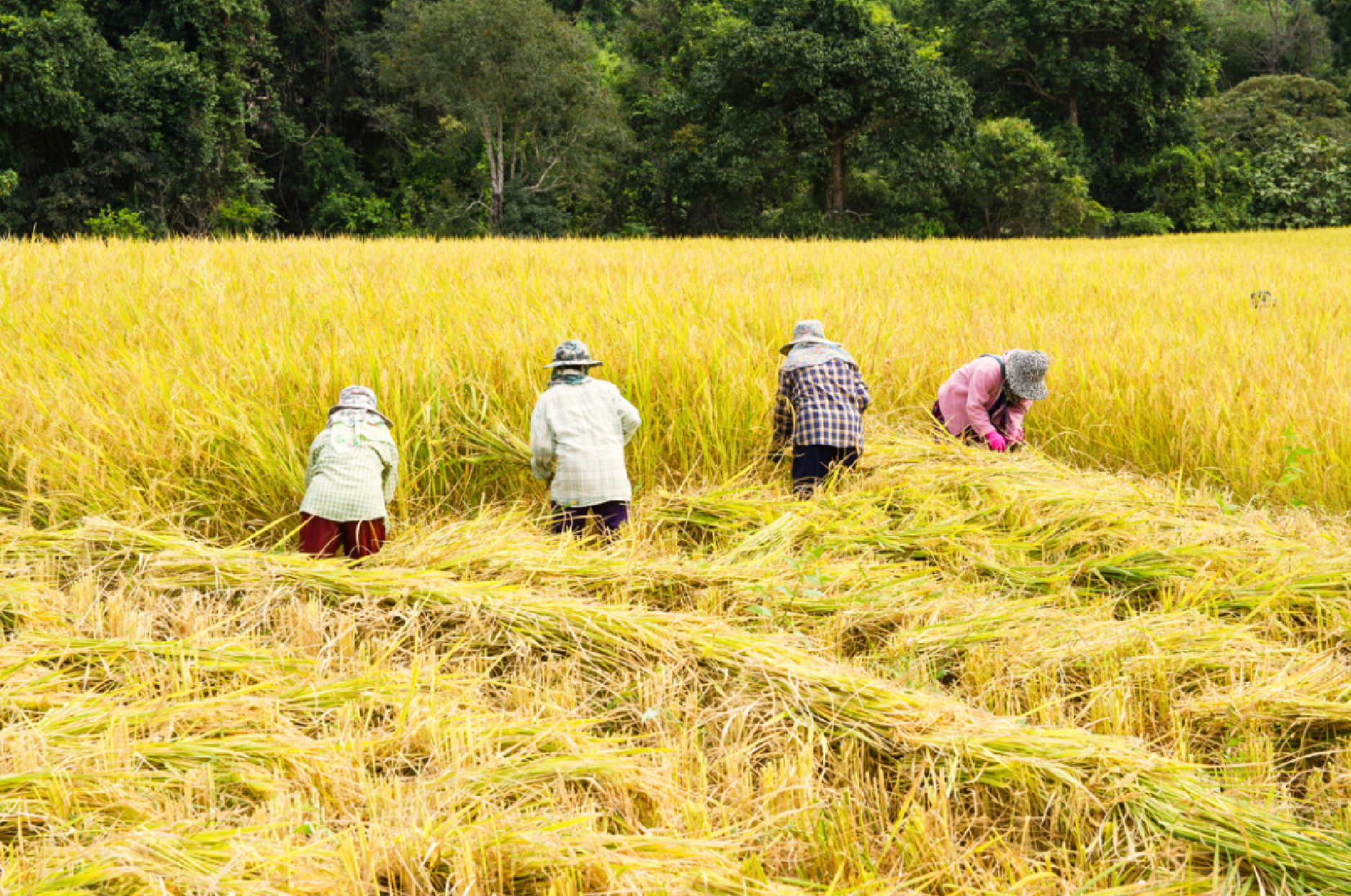
|
©千库网 | Qianku Network |
After analyzing about 15,000 survey data from the China Family Database which was collected in 2015, 2017, and 2019, ZHOU Xinyue’s team concluded that elderly farmers preferred using less mechanized farming tools, while also using fertilizer less efficiently, which can affect the quality of the soil resulting in an increment in environment pollution. This phenomenon is bound to decrease agricultural yield in the future threatening food security, and farmers’ income. Farmers’ income is already being affected as many aged farmers are resorting to small-scale farming due to a shortage of young labor.
The changes in farm size and the senescing rural population are estimated to have reduced the input of agricultural machinery by 6%, fertilizer by 2%, and manure by 64% respectively (Figure 1).
This reduction in agricultural input predictably reduced agricultural output and labor productivity per unit area by 5% and 4% respectively and reduced the disposable income of farmers by 15%.
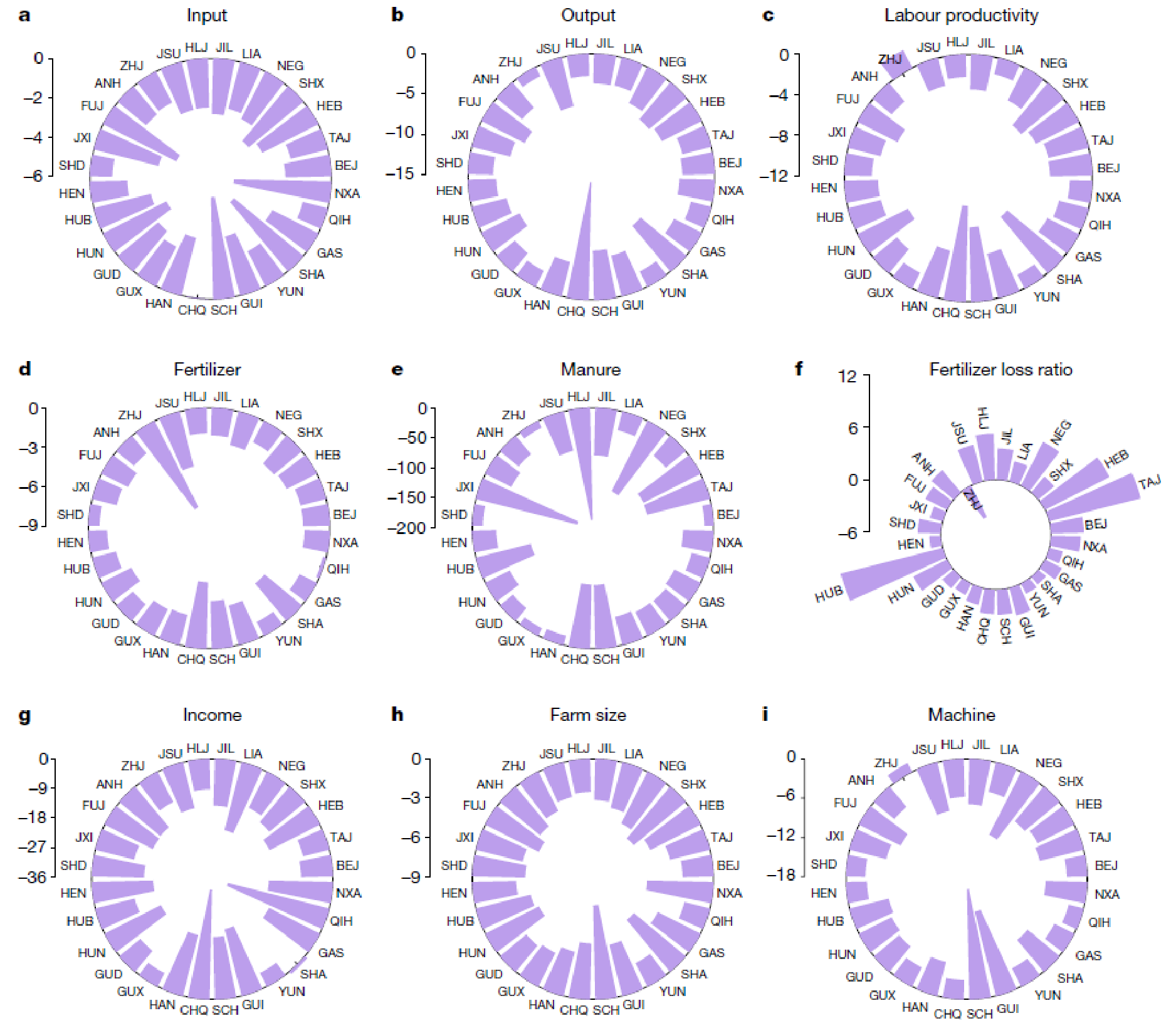
|
Figure 1 | Impact of Aging of Rural Population in Provinces of China on Agricultural Sustainability in 2019 |
|
However, the reduction in fertilizer input has not led to a reduction in the proportion of fertilizer waste, exacerbating environmental pollution by 3%. A majority of inefficient fertilizer use can be attributed to aging farmers who lack the ability to correctly estimate the amount of product that is required. So, it is understood that the increment in the elderly demographic has had a negative impact on the economic, environmental, and social aspects of agricultural sustainability (Figure 1).
|
Solutions that address these threats |
Objectively speaking, farmers cognitive ability and farming ability will inevitably decline with age. So how can we address these issues as fast as possible without affecting food security and the environment?
Through an in-depth research, Professor ZHOU Xinyues team found that although this is a difficult problem, a couple of solutions can be exercised.
First, the fundamental solution for agriculture lies in mechanization. Mechanical production can be introduced to empower aged farmers and enhance their farming ability; second, we can offset the lack of decision-making in aged farmers by encouraging them to cooperate with young and middle-aged farmers.
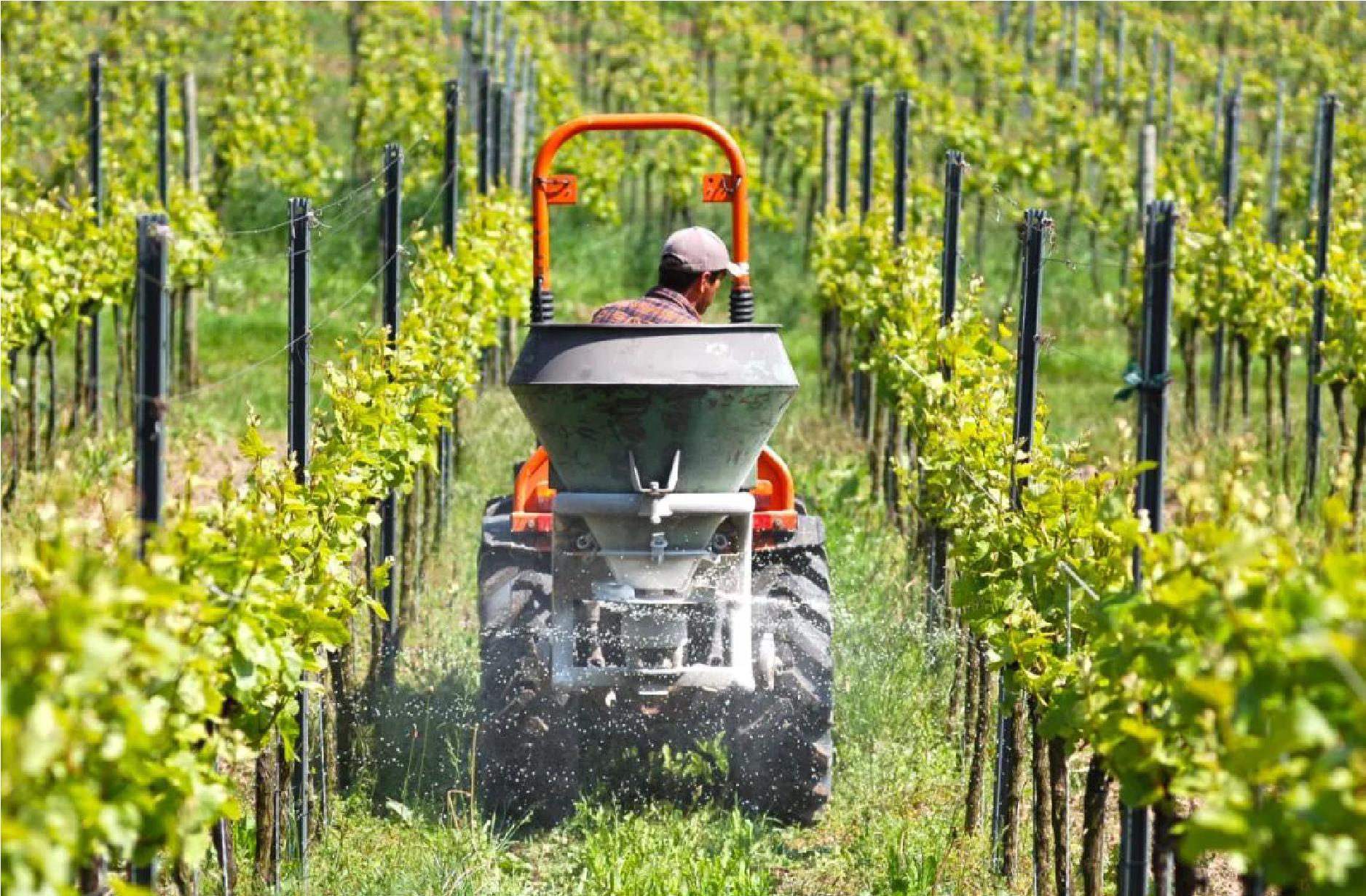
|
©千库网 | Qianku Network |
These two solutions have been well implemented in the agricultural operation model of new farming for some time now. Also, another important and a surefire measure, according to the team’s research is to adopt large-scale, mechanized, and intelligent agricultural business models of new farming (household farms, cooperative farms, and industrial farms).
Furthermore, their research asserts that, compared to traditional smallholder farming, number of aged farmers in new farming is significantly lower while education level is also higher (Figure 2). Simultaneously, the average farm size in new farming models is significantly larger (by 64%).
This shows that new farming will attract young farmers who are more educated and aware and, they possess the ability to operate on a large-scale basis. The total investment, fertilizer and machinery input in new farming models are 41%, 113% and 68% higher than that of traditional agriculture, thus improving farm management and practice.
Therefore, compared with traditional smallholder farming, the output per unit area and the labor productivity in new farming models has increased by 24% and 29% respectively (Figure 2).
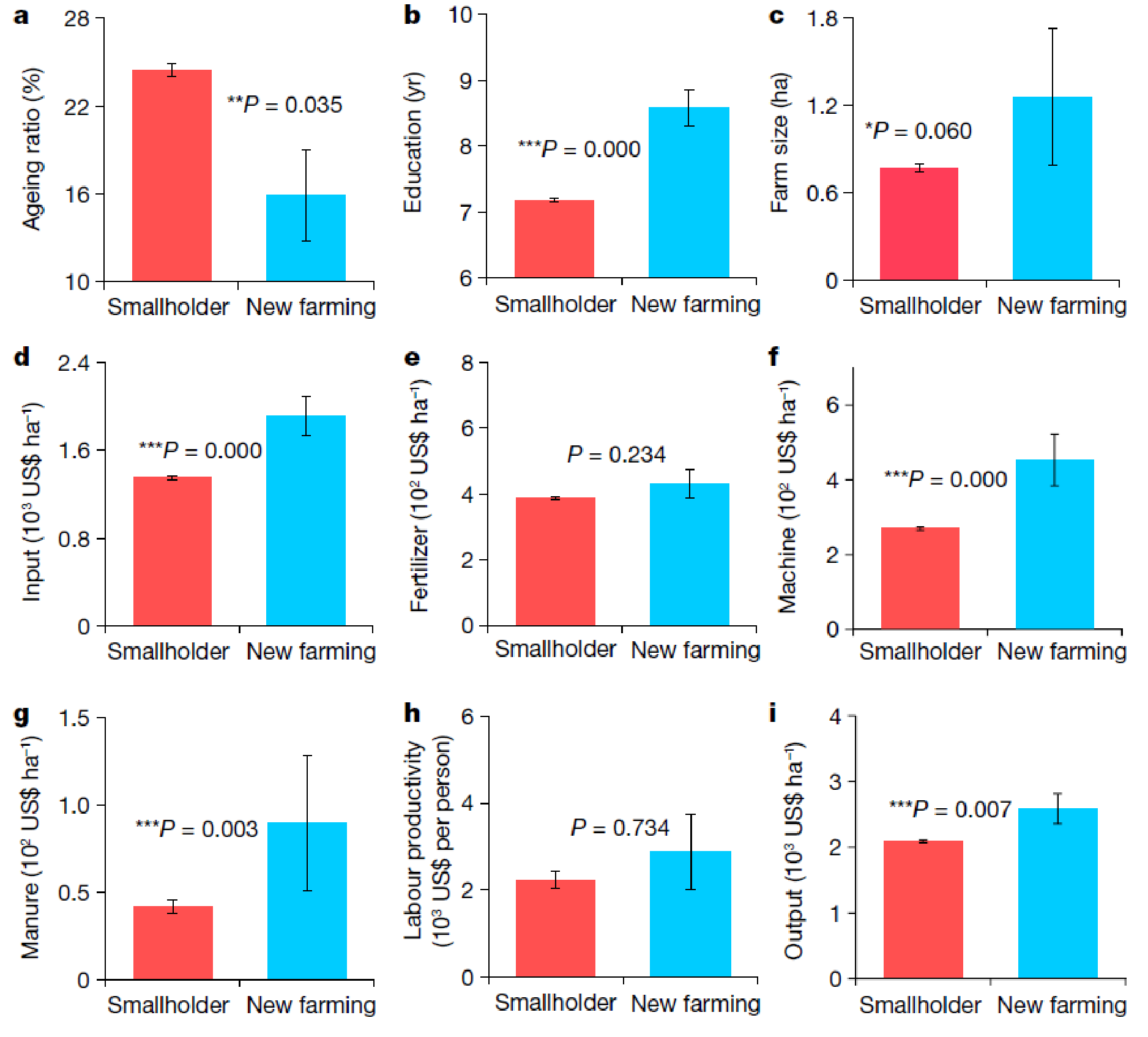
|
Figure 2 | Comparisons between Traditional Smallholder Farming and New Farming in 2019 |
|
In order to verify the effects of these intervening measures, Professor ZHOU Xinyues team further built a predictive model to deduce the agricultural scenario of the year 2100.
The model showed that, without these intervening measures, serious food security challenges and environmental pollution will result as the number of elderly farmers increases, impeding sustainable development of agriculture.
imii To be specific, with the exacerbation of the aging population problem in rural areas, the abandonment ratio of arable land in China will increase from 5% in 2020 to 6-15% in 2100 (the average value under different SSP scenarios is 11%), and the average farm size will decrease by 2-9% (the average value is 7%) (Figure 3). At the same time, agricultural input per unit area will be reduced by 1-6%, and fertilizer input will be reduced by 2-7%, resulting in an average reduction of output per unit area by 1%, and a reduction of labor productivity by about 0-6% (average of 2%). In addition, under the SSP1 and SSP4 scenarios, the environmental pollution attributed to fertilizer loss will increase by about 1%.
However, based on this prediction model, one can be optimistic that, active intervening measures can effectively reverse the consequences caused by the aging of the rural population.
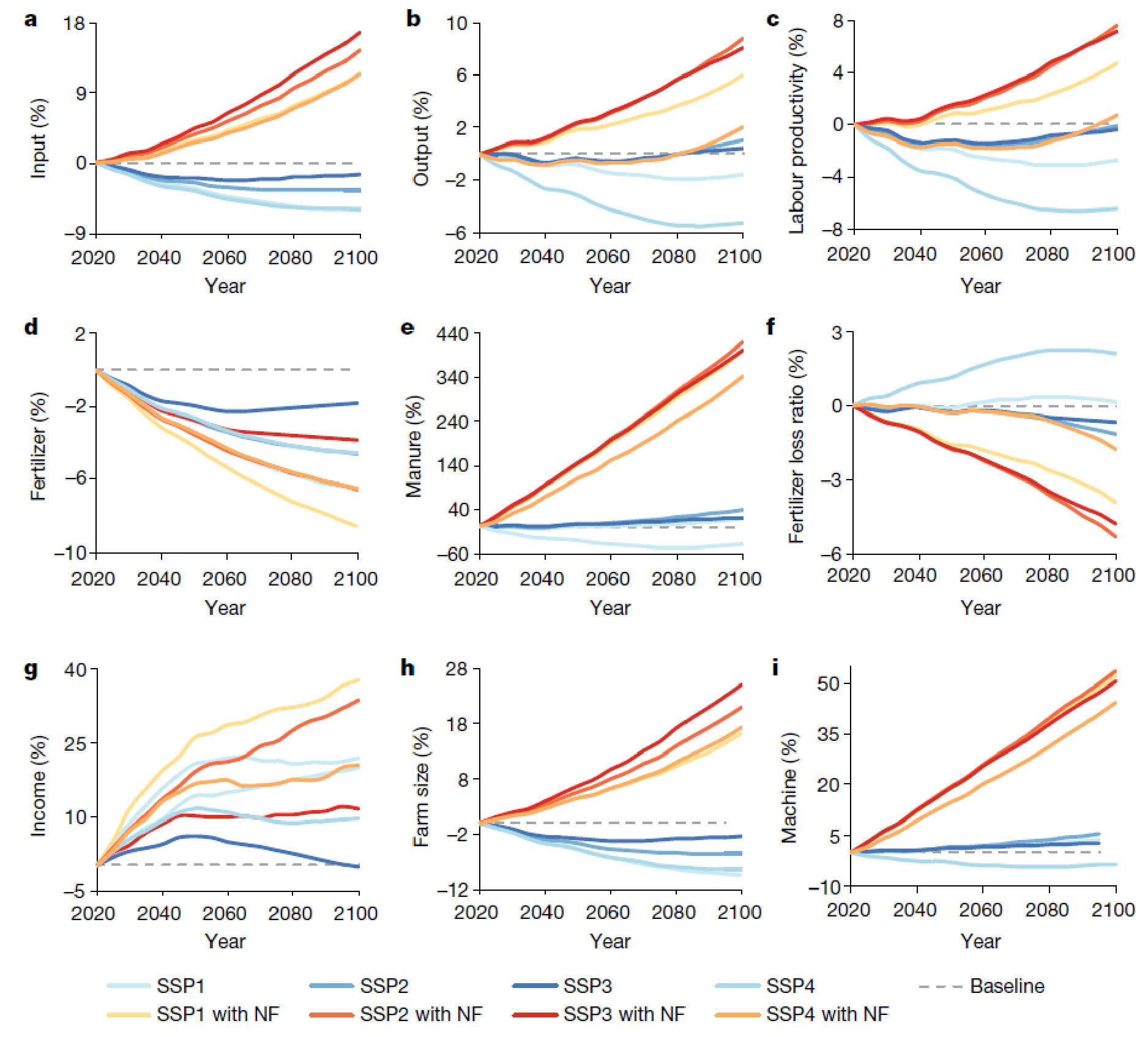
|
Figure 3 | Comparison between the Year 2100 and Year 2020 in terms of Agricultural Sustainability in China under the SSP Scenario |
|
Their research suggests that if China were to encourage the continuous transformation of traditional smallholder farming to new farming in the future, the average farm size in China will increase by 16-25% (20% on average) in 2100, and the abandonment ratio of arable land will decrease to 3-10%; the total agricultural input, including machinery input (50%) and fertilizer input (3-4 times), will increase by 14%; the agricultural output and labor productivity will increase by about 6% and 5% respectively.
Without considering inflation, the disposable income of farmers from the agricultural sector will increase by 12-39% (26% on average), from USD 167 per capita at present to USD 186-230 per capita in 2100.
On the other hand, fertilizer input will be reduced by 6%, and the environmental pollution caused by fertilizer loss will be reduced by 4%.
This shows that promoting new farming can ameliorate the negative impact of the aging demographic and promote the coordinated development of economic, environmental, and social aspects of agricultural sustainability.
|
Cross-school and Interdisciplinary, |
At present, China is experiencing the largest and fastest population aging in the world. The state has repeatedly urged us to actively respond to this issue by endorsing “Implementation of National Strategy to Address Population Aging" in the Fifth Plenum of the 19th Central Committee of the Communist Party of China.
As a foundation of the national economy, the green development of agriculture is an imperative factor that can determine how humans co-exist with nature. Food security, sustainable development of agriculture, and environmental protection are paramount to mankind’s longevity on this planet, so solving issues caused by the senescing rural population is a must.
Professor ZHOU Xinyue and her team’s research cater to issues of national importance by mitigating the negative impact of senescing rural farmers on the environment and economy, and by promoting a comprehensive transformation of China towards sustainable agriculture.
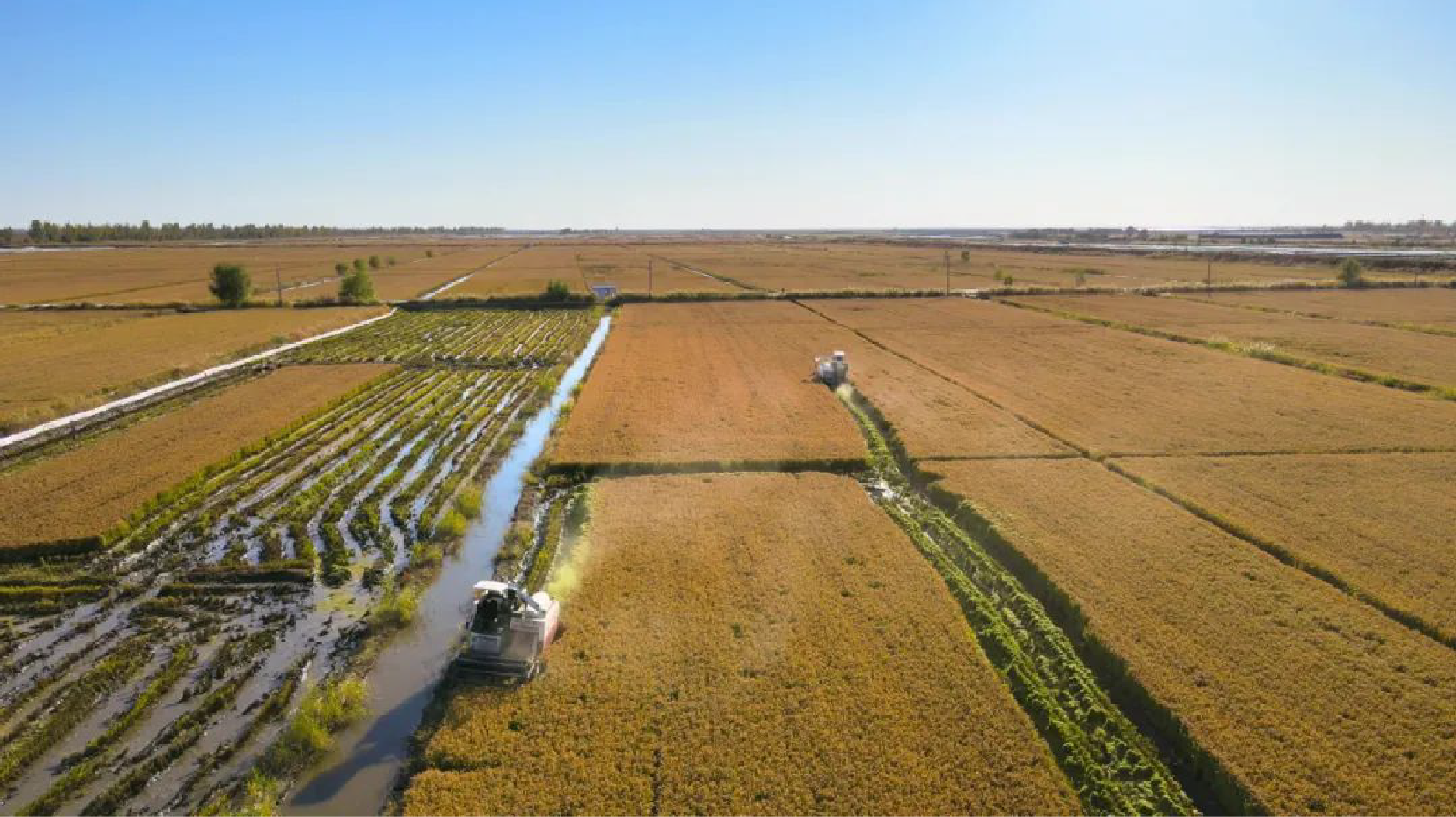
|
©千库网 | Qianku Network |
It is worth mentioning that this research is also interdisciplinary pertaining to "Business Plus" that features "Social Science + Natural Science" by attempting to solve social problems through science and engineering.
This research was inspired by a casual conversation between Professor ZHOU Xinyue and Professor GU Baojing, where they arrived to this topic in their discussion and realized that they could address these problems through interdisciplinary research involving social science and natural science.
Professor ZHOU Xinyue first shared some noteworthy operation behaviors of farmers from the perspective of management, and then students from both sides jointly promoted the analysis. After that, three undergraduate students from the College of Environmental and Resource Science also participated in the approval of an SRTP project.
The procurement of data was easy, however its analysis took most of the hard work. Logically coupling the change in population structure with agricultural development proved to be incredibly challenging. According to ZHOU Xinyue, "we need to build a logical relationship between the change of population structure and the change of agricultural productivity and environmental effects. At the beginning of the research, we did not fully understand this logical relationship, and were confused about how to construct relevant indicators to quantify the logical relationship".
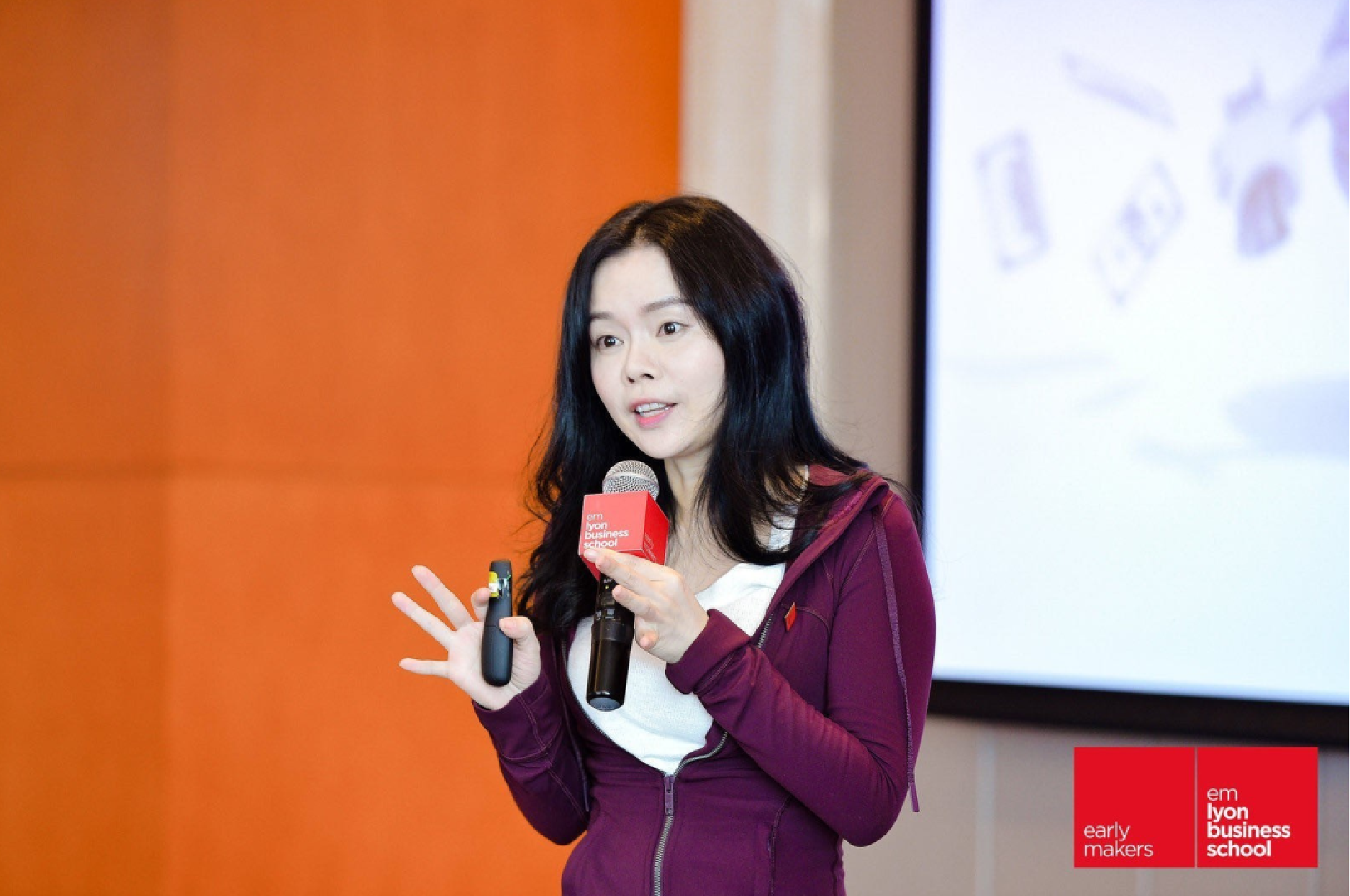
|
Professor ZHOU Xinyue from the School of Management at Zhejiang University (Image source: emLyon School of Business, France) |
In order to solve this problem, the team had to first scour through a plethora of literature, leading them to the conclusion that changes in population structure indeed bring about changes in agricultural operation behavior. For example, the senescence of the rural population indicates a shortage in young labor. Therefore, the aged can only save labor input by reducing the farm size and agricultural input, which consequently affects agricultural productivity and can have grave consequences for the environment.
Through diligent research, the team established a primary thesis for their research and constructed core variables involved in this logical chain of index quantification, which greatly expedited the research progress.
It is reported that this research was funded by the National Natural Science Foundation of China, the National Key Research and Development Program of China, the Pioneering Project of Zhejiang Province, and the Bellwether Program of Zhejiang Province. In the future, Professor ZHOU Xinyues team will conduct an in-depth exploration of "Business Plus" interdisciplinary research, serve the needs of national strategy, and involve themselves in extensive research opportunities relating to the aging populous and its effects on the environment and agriculture.
- We are thankful to Prof. ZHOU Xinyue and her team for raising awareness on this topic. We wish her luck and energy in finding a solution to the aging farmers situation.
- The original article in Chinese is available here